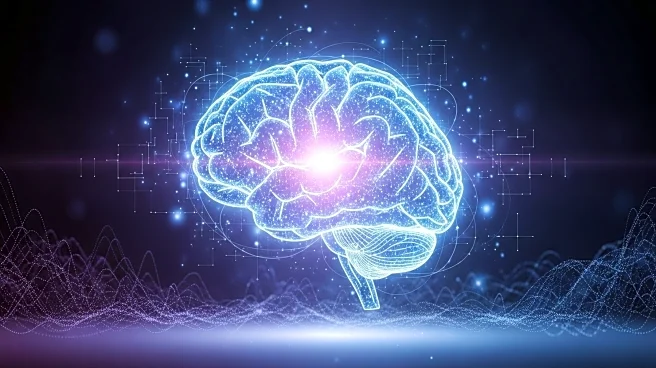What's Happening?
OpenAI has launched Sora 2, a video generation AI that has quickly gained popularity for creating videos featuring copyrighted characters like Pokémon and Mario. The app, which allows users to generate videos by uploading their own faces, has raised concerns over the use of copyrighted content. OpenAI is reportedly preparing an option for copyright holders to opt out of having their content used in Sora 2. The app has already been downloaded 56,000 times and ranks third in the U.S. App Store. Despite its popularity, the app's use of copyrighted material has led to discussions about potential legal challenges.
Why It's Important?
The release of Sora 2 highlights the ongoing tension between technological innovation and intellectual property rights. As AI technology advances, the ability to generate content that includes copyrighted material poses significant legal and ethical questions. This development could impact industries reliant on intellectual property, such as film and gaming, by challenging existing copyright laws. Companies like OpenAI may face legal battles if they do not adequately address these concerns, potentially affecting their business operations and reputation. The situation underscores the need for updated legal frameworks to keep pace with technological advancements.
What's Next?
OpenAI is reportedly notifying talent agencies and film studios about the opt-out process for copyrighted content. This proactive approach may help mitigate potential legal issues, but it remains to be seen how copyright holders will respond. The app's invitation-only status in the U.S. and Canada could limit its immediate impact, but as it expands, the legal landscape may evolve. Stakeholders in the entertainment and tech industries will likely monitor the situation closely, as the outcome could set precedents for future AI applications involving copyrighted material.
Beyond the Headlines
The Sora 2 app's ability to generate videos with copyrighted content raises broader questions about the ethical use of AI. As technology blurs the lines between real and generated content, issues of authenticity and consent become more pressing. The app's popularity also reflects a growing consumer interest in AI-generated media, which could drive further innovation and competition in the tech industry. However, balancing innovation with respect for intellectual property rights will be crucial to ensuring sustainable growth in this sector.









